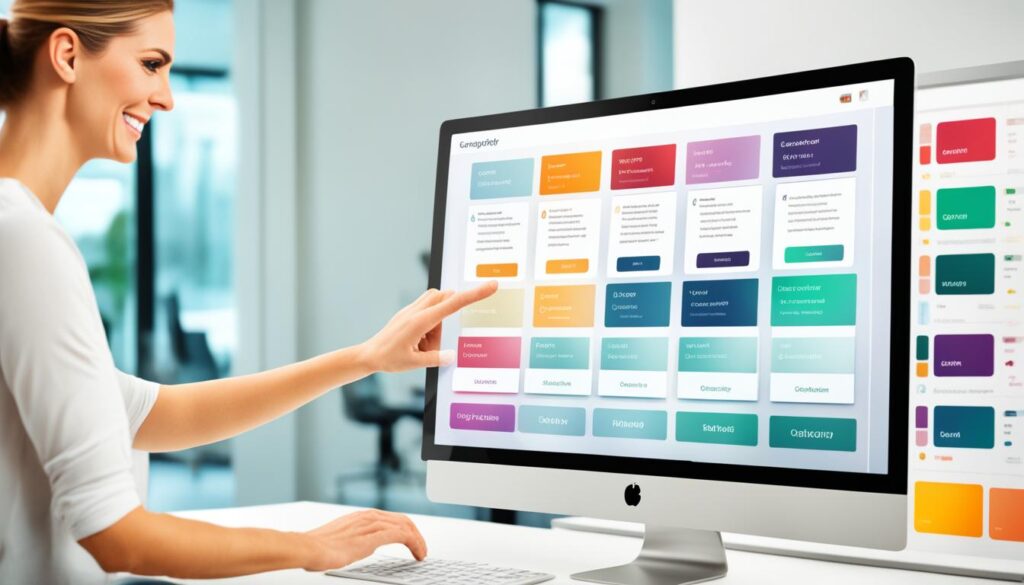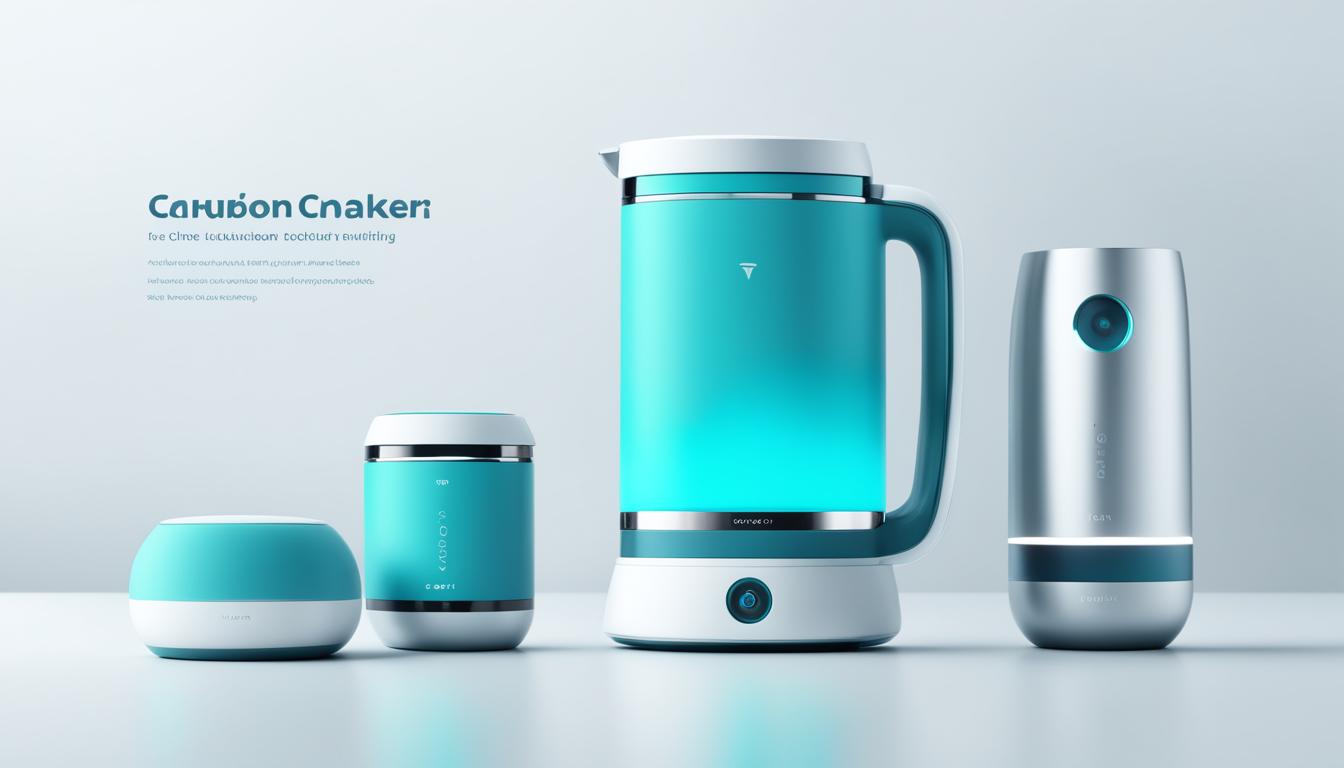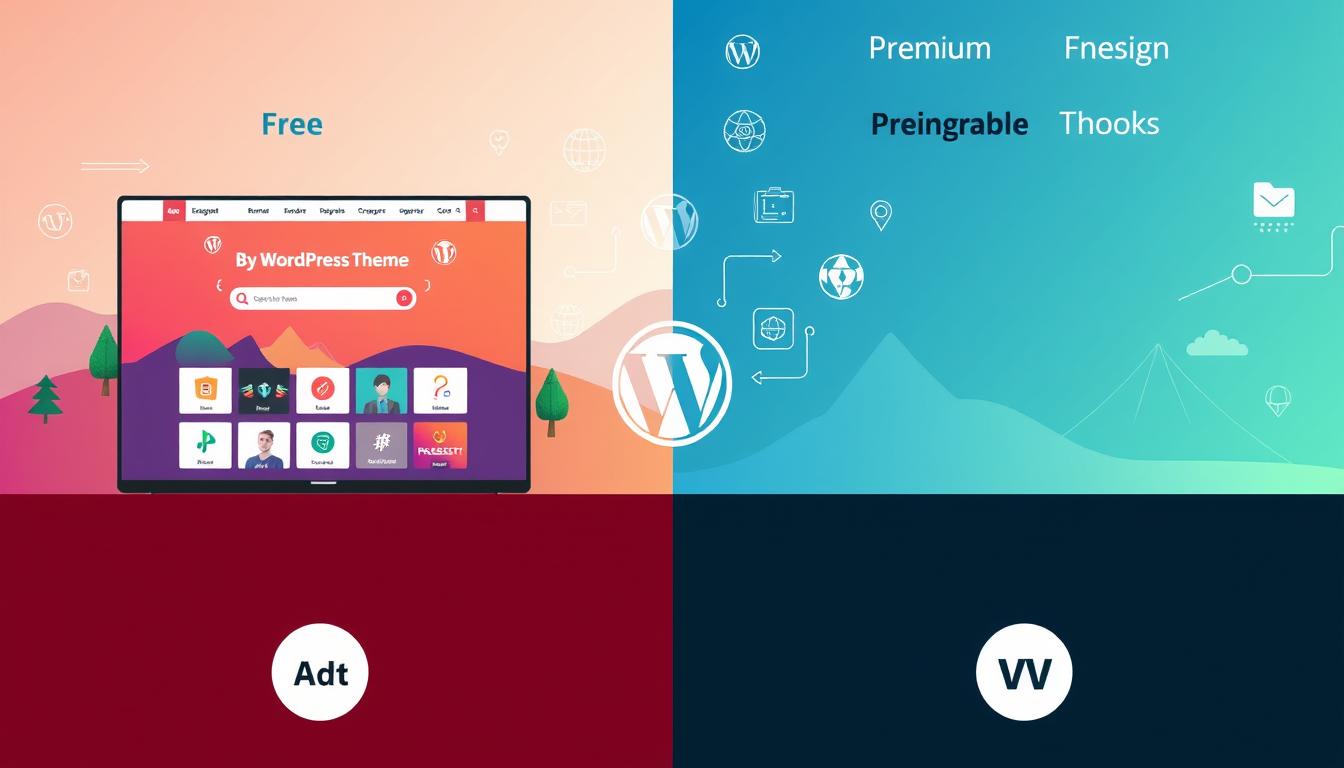Have you ever wished you could have a product that perfectly meets your needs and preferences? A product that reflects your unique personality and style? Well, you’re not alone. In today’s world, customers are increasingly seeking customized solutions that go beyond the one-size-fits-all approach.
From personalized clothing to bespoke furniture, custom product design solutions are revolutionizing the way we interact with products. But why is customization gaining such momentum? And how can businesses leverage this trend to transform their offerings and drive customer satisfaction? Let’s dive deep into the world of custom product design solutions and uncover the key insights.
Key Takeaways:
- Custom product design solutions allow customers to personalize and customize products according to their specific needs and preferences.
- Customization is essential in delivering tailored customer experiences, increasing customer satisfaction, and driving customer loyalty.
- Implementing product customization can provide businesses with valuable insights into their customers’ preferences, needs, and goals.
- Offering customized products can be a powerful strategy to boost sales and overall business success.
- Implementing product customization requires careful consideration and investment in the right resources, technology, and talent.
Cater to Different Customers’ Requirements
Not all customers want the same thing or use a product in the same way. Custom product design solutions allow businesses to cater to the different requirements of their customer base. By customizing products, businesses can ensure that their offerings are specifically tailored to the needs and preferences of different customer segments.
According to McKinsey & Company, 80% of customers now expect and desire personalized experiences. By offering customization options, businesses can create products that are attractive to a wider range of customers and increase customer satisfaction. Customization also offers the opportunity to gain loyal customers who value the ability to personalize their experiences.
By understanding and catering to customers’ requirements, businesses can provide personalized experiences and customized products that align with their customers’ needs. This approach not only improves customer satisfaction but also increases the likelihood of customer loyalty and repeat business. With the rise in expectations for personalized experiences, businesses that do not offer customization options may find themselves at a disadvantage in today’s competitive market.
One example of a company that effectively caters to customers’ requirements is Nike. Through their Nike By You platform, customers can personalize and design their own shoes by selecting colors, materials, and even adding custom text. This level of customization allows customers to create unique products that cater to their individual style and preferences, leading to increased customer satisfaction and brand loyalty.
Furthermore, customization provides businesses with valuable insights into their customers’ preferences and needs. By analyzing the customization choices customers make, businesses can gather data that helps them understand their target audience better. This knowledge can inform future product development and marketing strategies, leading to improved customer experiences and increased customer satisfaction.
“Offering customized products not only meets customers’ unique needs but also allows businesses to stand out in a crowded market. By providing personalized options, businesses can differentiate themselves from competitors and create a competitive advantage.” – McKinsey & Company
In conclusion, catering to customers’ requirements through product customization is vital for businesses seeking to enhance customer satisfaction and build customer loyalty. By offering personalized experiences and customized products, businesses can meet the specific needs and preferences of their customers, leading to increased customer satisfaction and ultimately, business success.
Understand Your Customers Better
Implementing product customization allows businesses to gain a deeper understanding of their customers. By offering customization options, businesses can collect valuable data on how their customers use their products and what they expect from them. This information provides customer insights that can help businesses identify popular features, improve development strategies, and make informed pricing decisions.
Customization also provides businesses with insights into their customers’ preferences, needs, and goals. Understanding customer behavior enables businesses to deliver more tailored and meaningful experiences that meet and exceed customer expectations. This results in higher customer satisfaction and increased retention rates, as customers feel understood and valued.
“By offering customization options, businesses can unlock valuable insights into their customers’ preferences, needs, and goals, enabling them to deliver personalized experiences that drive customer loyalty and satisfaction.”
By analyzing customer data obtained through customization, businesses can identify patterns and trends, allowing them to make data-driven decisions to enhance their products and services. Understanding customer needs and preferences helps businesses create targeted marketing campaigns and develop customer-centric strategies. This leads to improved customer engagement and conversions, ultimately boosting business success.
Examples of Customer Insights through Customization
| Name | Industry | Customer Insight |
|---|---|---|
| Spotify | Music Streaming | Understanding user preferences to create personalized playlists and recommendations. |
| Nike By You | Sportswear | Customizing shoe designs based on individual style and performance preferences. |
| Starbucks | Coffee | Collecting data on customer drink preferences to offer personalized recommendations and promotions. |
Through customization, businesses gain valuable customer insights that drive customer-centric decision-making and enable the delivery of tailored experiences. By understanding customers better, businesses can position themselves as industry leaders, meet evolving customer expectations, and create lasting, profitable relationships with their customers.
Boost Sales and Business Success
Offering customized products can be a powerful strategy to boost sales and overall business success. When customers are satisfied with their personalized products, they are more likely to share their positive experiences with others, leading to word-of-mouth marketing and organic growth. By allowing customers to customize their products, businesses can differentiate themselves from competitors and provide a unique value proposition.
According to McKinsey, successful personalization programs can lead to 20% higher customer satisfaction rates and a 10 to 15% boost in sales conversion rates. Customization also enhances customer loyalty and retention, as customers feel a stronger connection to products that are personalized to their specific needs and preferences.
“By offering customized products, businesses can create a competitive advantage and foster organic growth through the power of word-of-mouth marketing.”
When customers receive customized products that meet their unique requirements, they are more likely to recommend the brand to others. Positive word-of-mouth marketing not only helps acquire new customers but also strengthens the relationship with existing ones. A satisfied customer becomes a brand advocate, actively promoting the customized products and contributing to the organic growth of the business.
Moreover, personalized products have the potential to create a long-term competitive advantage. When businesses offer customization options, they tap into the emotional connection customers develop with the products. Customers feel a sense of ownership and pride in products that are customized to their preferences, leading to increased loyalty and repeat purchases.
“Customized products create a competitive advantage by establishing a strong emotional bond with customers.”
By embracing customization, businesses can turn their products into more than just commodities. Customization enables businesses to offer unique solutions tailored to each customer’s specific needs, delivering personalized experiences that resonate on a deeper level. This emotional connection not only drives sales but also fosters long-term customer satisfaction and loyalty.
In conclusion, offering customized products can significantly contribute to sales growth and overall business success. By leveraging word-of-mouth marketing, capitalizing on organic growth, and establishing a competitive advantage through personalized experiences, businesses can elevate their brand and meet the individualized expectations of their customers.
How to Offer Product Customization
Implementing product customization can be a complex process that requires careful consideration. To offer product customization, businesses need to identify and prioritize customization opportunities based on customer demand. Creating user personas can help businesses understand the different segments of their customer base and their specific needs and goals. Analyzing feature requests and customer feedback can also provide valuable insights into the customization options that customers are seeking. Businesses should consider the impact of customization on their existing products, brand, and support processes. By investing in the right resources, technology, and talent, businesses can successfully offer product customization and deliver personalized experiences to their customers.
Identifying Customization Opportunities
When offering product customization, it’s essential to identify the right opportunities that align with customer demand. Conduct market research, analyze industry trends, and gather insights from customer feedback to understand what types of customization would be valuable to your target audience. Look for areas where customers express a desire for personalized options or alternative features that can enhance their overall experience. This research will help you prioritize and focus your customization efforts on areas that will provide the most value.
Creating User Personas
Developing user personas is a crucial step in understanding your customers’ preferences and needs. User personas are fictional representations of your target customers, based on data and research. These personas should include information such as demographics, behaviors, goals, and pain points. By creating user personas, you can gain a deeper understanding of the different segments of your customer base and tailor your customization options to meet their unique requirements. For example, if your product caters to both beginner and advanced users, you can offer customization features that cater to each persona’s skill level.
Listening to Feature Requests and Feedback
Feature requests and customer feedback can provide valuable insights into what your customers want in terms of customization options. Pay attention to the feature requests customers submit and take note of their suggestions. Feedback from customer surveys, reviews, and support interactions can also help you identify common pain points or areas where customers desire more control over their product experience. By actively listening to your customers’ needs and incorporating their feedback into your customization strategy, you can create a more tailored and satisfying experience.
Considering the Impact
Before implementing product customization, businesses should consider the impact it will have on their existing products, brand, and support processes. Will offering customization options require significant changes to your production or fulfillment processes? Will it align with your brand identity and values? Assessing the potential impact of customization will help you ensure that the benefits of offering customization outweigh any potential challenges or drawbacks.
| Benefits of Offering Product Customization | Considerations |
|---|---|
| Enhanced customer satisfaction and loyalty | Potential production and logistical challenges |
| Competitive advantage through differentiation | Ensuring customization options align with brand identity |
| Increased revenue and sales opportunities | Effect on support processes and resources |
By investing in the right resources, technology, and talent, businesses can successfully offer product customization and deliver personalized experiences to their customers. Remember, customization opportunities should be aligned with customer demand and preferences, supported by user personas and feature requests, and carefully considered to ensure a positive impact on your products and brand.

Examples of Product Customization in B2C
Product customization is widely implemented in various B2C industries, including e-commerce apps, streaming services, and social media platforms. These industries leverage customization to create personalized user experiences and enhance customer engagement.
1. E-commerce Apps
E-commerce apps like Amazon provide excellent examples of product customization. With personalized product recommendations, Amazon tailors its user experiences by suggesting products that align with customers’ browsing and purchasing history. By offering customized suggestions, Amazon increases user engagement and satisfaction.
2. Streaming Services
Streaming services, such as Netflix, excel in product customization. They use customer data and algorithms to deliver customized movie and TV show recommendations. By understanding users’ viewing preferences, genres, and rating patterns, Netflix creates tailored content suggestions that keep viewers engaged and satisfied.
3. Social Media Platforms
Social media platforms like Facebook implement customization to provide users with personalized content feeds. Facebook’s tailored content algorithms analyze users’ interests, interactions, and online behavior to curate a unique feed of posts, articles, and advertisements. This customization ensures that users receive content that is relevant to their preferences and increases engagement on the platform.
In implementing product customization, e-commerce apps, streaming services, and social media platforms demonstrate the impact of customization in increasing user engagement, satisfaction, and overall business success. By leveraging customer data and algorithms, these platforms offer more relevant and individualized experiences, resulting in higher customer retention rates and positive word-of-mouth marketing.
Conclusion
Custom product design solutions offer businesses the opportunity to deliver personalized experiences that cater to the unique needs and preferences of their customers. By implementing product customization, businesses can cater to different customer requirements, gain loyal customers, understand their customers better, boost sales and business success, and offer personalized user experiences.
While there are challenges associated with overpersonalization and customization, finding the right balance is key to ensuring positive user experiences. By carefully considering the customization options that align with customer demand and investing in the right resources, technology, and talent, businesses can successfully offer product customization and deliver personalized experiences to their customers.
In conclusion, custom product design solutions have the potential to transform businesses by elevating their brand and meeting the individualized expectations of their customers. By harnessing the power of customization, businesses can create a competitive advantage, drive customer satisfaction, and foster long-term customer loyalty through personalized experiences.
FAQ
What are custom product design solutions?
Custom product design solutions offer the ability for customers to personalize and customize products according to their specific needs and preferences.
Why is customization important?
Customization is essential in delivering tailored customer experiences, increasing customer satisfaction, and driving customer loyalty. According to McKinsey & Company, 80% of customers expect and desire personalized experiences.
How can custom product design solutions cater to different customer requirements?
Not all customers want the same thing or use a product in the same way. Custom product design solutions allow businesses to cater to the different requirements of their customer base. By customizing products, businesses can ensure that their offerings are specifically tailored to the needs and preferences of different customer segments.
How can customization help businesses understand their customers better?
Implementing product customization allows businesses to gain a deeper understanding of their customers. By offering customization options, businesses can collect valuable data on how their customers use their products and what they expect from them. This information can help businesses identify popular features and improve their development and pricing strategies.
How does customization boost sales and business success?
Offering customized products can be a powerful strategy to boost sales and overall business success. When customers are satisfied with their personalized products, they are more likely to share their positive experiences with others, leading to word-of-mouth marketing and organic growth. Customization also enhances customer loyalty and retention, as customers feel a stronger connection to products that are personalized to their specific needs and preferences.
How can businesses offer product customization?
Implementing product customization can be a complex process that requires careful consideration. To offer product customization, businesses need to identify and prioritize customization opportunities based on customer demand. Creating user personas can help businesses understand the different segments of their customer base and their specific needs and goals. Analyzing feature requests and customer feedback can also provide valuable insights into the customization options that customers are seeking.
Are there examples of product customization in B2C industries?
Product customization is widely implemented in various B2C industries, including e-commerce apps, streaming services, and social media platforms. For example, Amazon’s personalized product recommendations, Netflix’s customized movie recommendations, and Facebook’s tailored content feed are all examples of how businesses use customization to create personalized user experiences.








